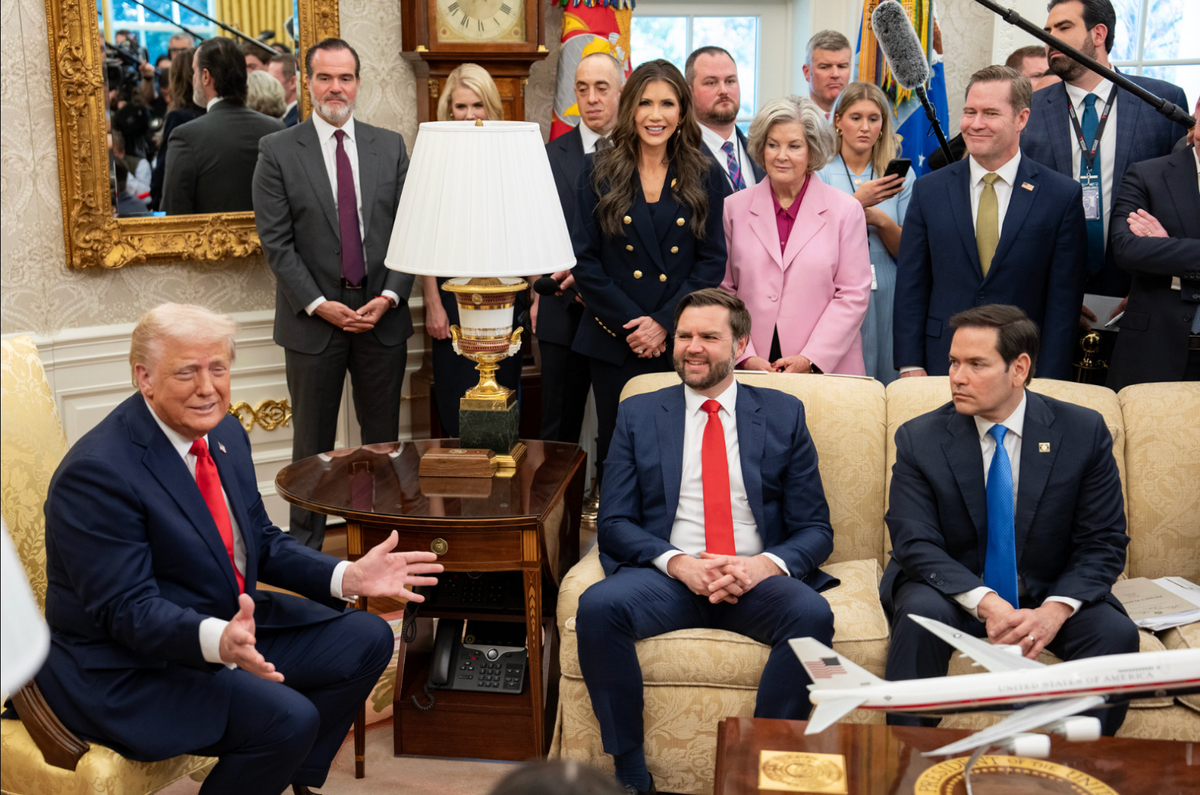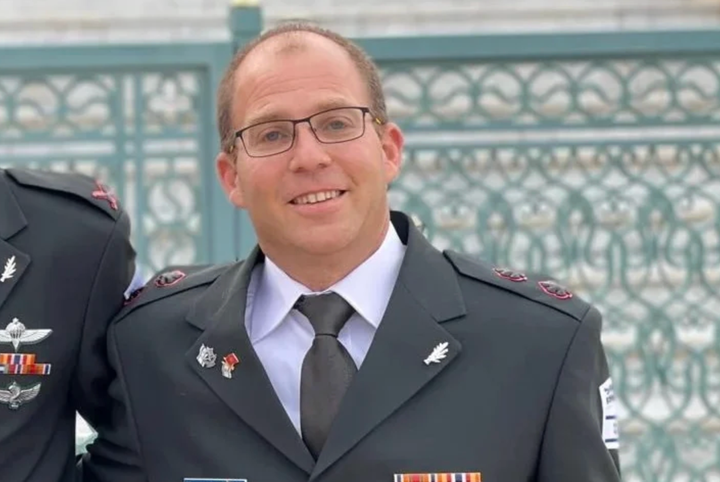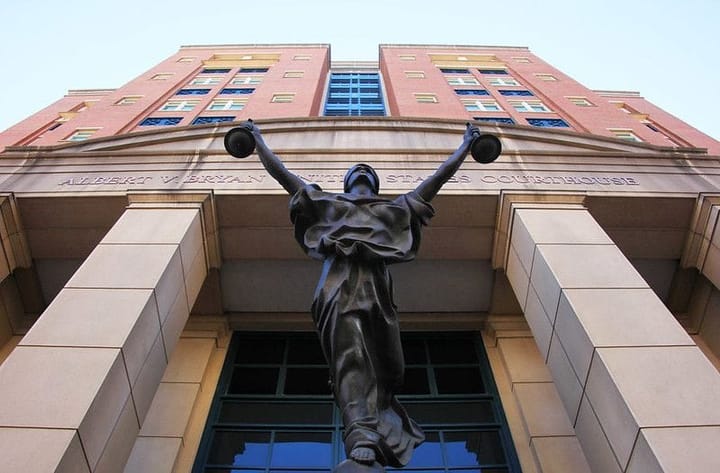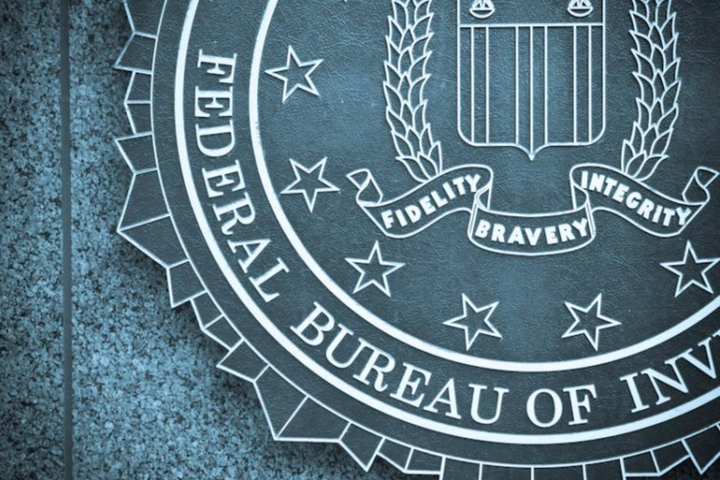The Trump Administration's Lie Detector Dragnet
The use of lie detector tests to root out alleged leakers has added to the climate of fear under Trump.

[Editor's Note: Given news reports that embattled Defense Secretary Pete Hegseth threatened top military officials with polygraph exams for alleged media leaks, The Dissenter is unlocking this report that was sent exclusively to paid subscribers on April 15.
Please donate to ensure that The Dissenter can continue its coverage of attacks on whistleblowers and freedom of the press. Or become a monthly or annual paid subscriber here.]
The increased use of lie detector tests to identify alleged leakers has added to the climate of fear under President Donald Trump’s administration.
Homeland Security Secretary Kristi Noem subjected several employees, including the acting FEMA administrator, to polygraph exams. Similarly, Pete Hegseth, the chief of the Pentagon, has utilized tests to crack down on personnel who are talking to the press.
The results of lie detector tests could form the basis for criminal prosecutions under the Espionage Act and other statutes, and such tests can easily misidentify individuals while discouraging whistleblowers from reporting waste, fraud, and abuse.
In 2018, Senator Rand Paul suggested that the first Trump administration should “use a lie detector test and ask people [in the White House] whether they [were] talking to the media against the policy of the White House.”
CNN outlined how a polygraph works and noted that the American Psychological Association (APA) does not believe lie detectors are accurate.
Lie detectors are supposed to show changes in person’s breathing, heartbeat, or blood pressure. Spikes generally raise suspicion, however, the APA contends that there could be several reasons for a person to be nervous during an exam.
“There is no evidence that any pattern of physiological reactions is unique to deception. An honest person may be nervous when answering truthfully and a dishonest person may be non-anxious,” according to the APA.
Doug Williams, the author of “How To Sting The Polygraph,” wrote, “Fear, rage, embarrassment at having been asked a personal question, pain from the cardio cuff, even the tone of the examiner’s voice can all cause the exact same reaction that the polygraph examiner would brand as a lie.”
The Office of Technical Assessment (OTA), which was established by the United States Congress in 1974 but defunded in 1995, conducted a study [PDF] in the early 1980s. It reviewed lie detector tests conducted by various U.S. agencies, including the CIA, NSA, and the Pentagon. (The study, “Scientific Validity Of Polygraph Testing,” was declassified in 2010.)
Twenty studies of lie detector use for “specific-incident criminal investigations” were considered by the OTA. It acknowledged the “wide variability of results from both prior research reviews and OTA’s own review of individual studies” and concluded that a polygraph may detect “deception at a rate better than chance, but with error rates that could be considered significant.”
For investigations of unauthorized disclosures of information, the OTA determined that no research established “polygraph testing validity” when “dragnet” screenings of large numbers of employees are conducted.
Tom Devine, the legal director for the Government Accountability Project, told CNN that he was stunned by the “volume” of lie detector tests authorized by agency officials.
“Government agencies for decades, have used lie detectors to catch leakers or anyone else they perceived as wrongdoers. The difference here is the volume,” Devine declared. “What used to be a sensitive, carefully considered high-risk decision, is now a knee-jerk reaction, and that’s what’s scary.”
Yet it’s important to recall that the increased reliance on lie detector tests to identify leakers can be traced back to the crackdown on leaks that occurred under President Barack Obama.
In 2012, Director of National Intelligence James Clapper announced that intelligence employees would be required during their “counterespionage polygraph examination” to answer a question on whether they leaked “restricted information” to journalists or the news media. “Investigators” would also be able to “call in anyone for a polygraph test about a particular leak, apart from a criminal leak investigation by the Federal Bureau of Investigation.”
A major McClatchy News investigation in 2013 exposed how federal agencies pushed “legal and ethical limits during screenings of job applicants and employees.”
Mark S. Phillips, a polygraph examiner assigned by the Air Force to the National Reconnaissance Office (NRO), submitted a complaint to the inspector general alleging systematic abuse of polygraph tests. He said he was asked to obtain “lifestyle” information from those who took exams. When he challenged the legality of pursuing such information, officials retaliated against him with “harassment and poor performance evaluations.”
Efforts to root out potential leakers may go beyond merely asking an employee whether they leaked to the press. It is known that the Insider Threat Program involves the construction of behavioral profiles.
Agencies may collect “lifestyle” information, including evidence of “deviant/criminal sexual behavior, alcohol abuse, illicit drug use, serious criminal activity, unexplained wealth, financial irresponsibility, personal conduct-related behaviors.” Officials may refer to this information when calling into question a person’s trustworthiness as well as their “psychological conditions.”
In April 2015, “a federal jury awarded $4 million to nine former translators,” who were “forced at the behest of the Drug Enforcement Administration to undergo illegal lie-detector tests.” McClatchy described the development as a “rare rebuke of the federal government’s reliance on lie detector tests.” When the award was issued, a federal judge already had determined the tests were in violation of federal law and the DEA paid half a million to settle the lawsuit with the translators.
George Maschke, a former U.S. Army intelligence officer and interrogator, co-founded AntiPolygraph,org in 2000. He spoke to BBC World Service’s “Newshour” about the use of lie detector tests.
“I think it’s a misguided policy decision because it’s likely to result in innocent people being falsely accused. At the same time, anyone who is leaking sensitive information could easily beat the polygraph using simple countermeasures that anyone could learn,” Maschke said. “So it’s not surprising then that in the history of the United States there is no documented case where the polygraph has ever solved a leak investigation.”
Maschke mentioned that lie detectors were used by President Ronald Reagan’s administration to find leakers. “It was an utter failure.”
As Maschke previously shared, he was one of the first people to be subjected to a polygraph when FBI started relying on the exams in 1995. He was falsely accused of being a spy as a result of “polygraph chart readings.” Disqualified from FBI employment, he was forced out of the U.S. Army as well.
“[F]ailing a polygraph if you’re telling the truth can have devastating career consequences, which is something I’m concerned about with the current polygraph dragnet going on in the Department of Homeland Security,” the former military intelligence officer added.




Comments ()